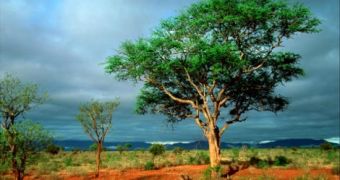Only recently made public, the Africa Ecological Footprint Report from 2012 pin-points two major issues this continent must address as soon as possible. Firstly, it seems that, throughout the past forty years, Africa has lost roughly 40% of its biodiversity.
Secondly, the increase in population means that the countries here need more and more resources to stay afloat.
To put it bluntly, as African industries expand, natural landscapes may soon be few and far in between.
Thus, unless a way to balance social development and environmental protection is found, odds are that Africa will soon face an unprecedented downfall, from which it may not recover so easily.
However, the good news is that, given Africa's wealth in terms of natural resources, both these problems can be dealt with quite quickly and successfully, as long as the local governments take a firm interest in coming up with plans to properly manage renewable energy sources, urban development, and national forests and waters.
According to panda.org, Jim Leape, WWF (World Wide Fund for Nature) director general and one of the people who worked together with the AfDB (African Development Bank) on the afore-mentioned report, argues that “our ecological infrastructure – terrestrial, freshwater and marine ecosystems – is as essential to human development as are industrial and social infrastructures such as roads, schools, hospitals and energy provision.”
Therefore, after having come up with this report, WWF and AfDB plan on closely working together with Africa's local communities, administrations and businesses.
Their main goal is to implement conservation programs that will allow the African society to remain unhindered in its economic growth, whilst at the same time keeping a close eye on the natural ecosystems found in this part of the world.
Hopefully, things will find themselves moving on the right track soon enough, and National Geographic documentaries about this continent and its landscapes will remain as fascinating as they always have been.

 14 DAY TRIAL //
14 DAY TRIAL //